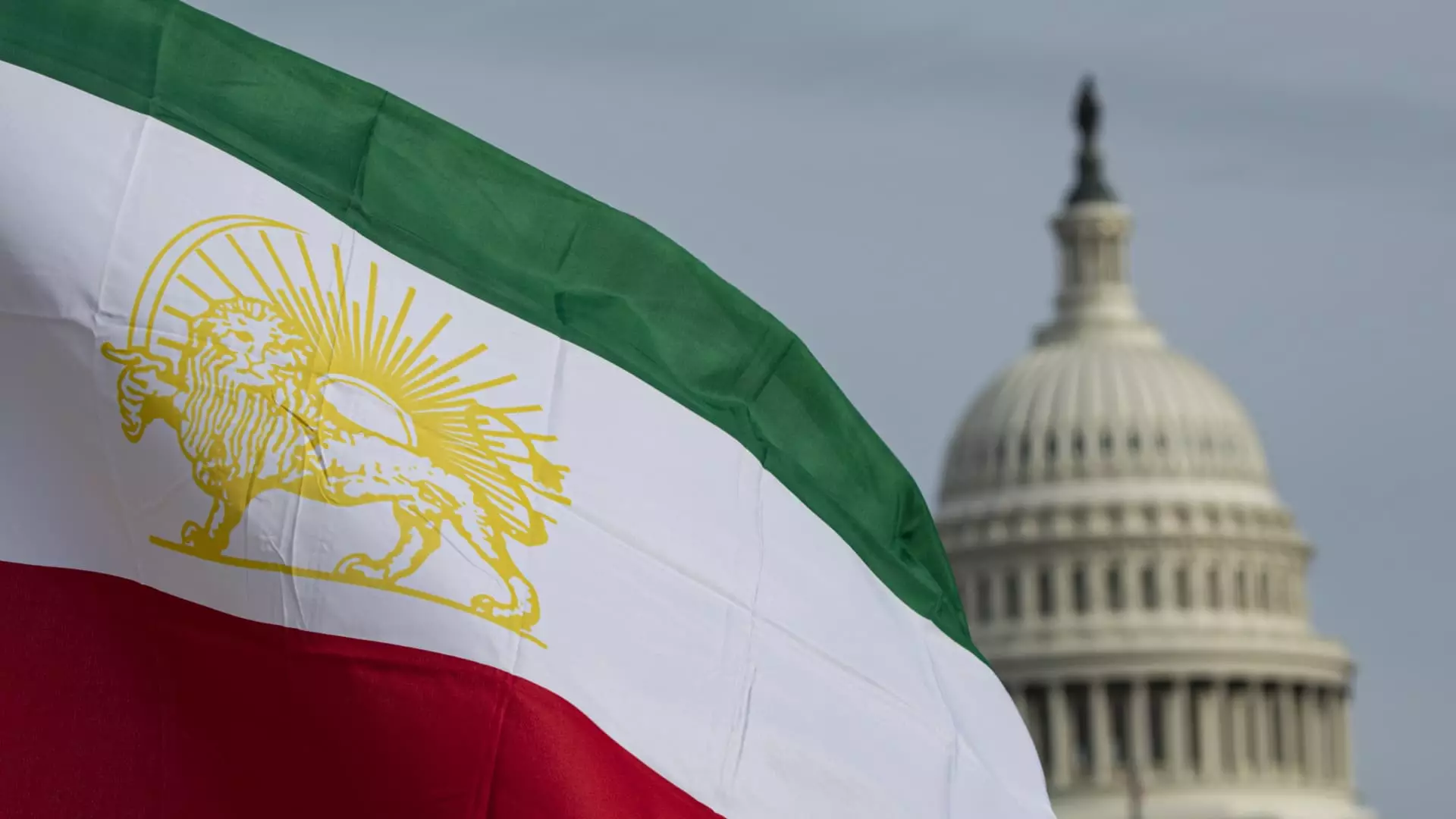The landscape of international relations is often marked by intricate negotiations, and the recent talks between the United States and Iran stand out as a testament to both the potential for diplomatic resolutions and the shadows of mistrust that linger. As the stakes rise, with the prospect of nuclear catastrophe looming over the negotiations, it becomes evident that the road to peace is fraught with challenges and complex dynamics. While both sides express a desire to find common ground, an undercurrent of skepticism remains palpable, especially from Iranian representatives like Foreign Minister Abbas Araqchi, who offers a stark reminder of the guarded optimism necessary in such high-stakes discussions.
The U.S. administration, buoyed by President Trump’s promises of a potentially historic agreement, possesses a confident façade. Yet, the enthusiasm of American negotiators contrasts sharply with the intense caution displayed by their Iranian counterparts. Araqchi’s warnings about the fragile nature of the negotiations encapsulate the uncertainty that pervades the discussions. Could it be that the optimism from one side is merely a cover for the fears lurking beneath?
A Struggle for Trust and Transparency
At the heart of these negotiations is an existential question: how can trust be established between parties repeatedly burned by past breaches? Negotiations have plunged into formidable depths, highlighted by rounds in Muscat and Rome that, while described as “constructive,” reveal deep-seated differences on key issues. The critique lies not only in the diverging expectations but also in the complex history that has brought both nations to this precipice. A meaningful agreement hinges on Tehran’s ability to assuage fears surrounding its nuclear ambitions while also addressing its insistence on maintaining its missile capabilities.
The proposal — to build confidence in the peaceful nature of Iran’s nuclear endeavor in exchange for sanctions relief — is a fine balancing act that raises inevitable questions. Can either party afford to trust the other, particularly when Iran’s enrichment activities have accelerated in the face of renewed economic sanctions? The specter of distrust looms large, and every word exchanged is weighed against a backdrop of skepticism fueled by decades of animosity.
The Weight of Sanctions and Military Threats
A key obstacle remains the iron grip of sanctions imposed by the U.S. following Trump’s unilateral withdrawal from the Joint Comprehensive Plan of Action (JCPOA) in 2018. The narrative of “maximum pressure” has done more than cripple Iran economically; it has also left scars on the negotiation landscape, sowing distrust that complicates diplomatic overtures. The insistence of the U.S. that Iran must cease uranium enrichment altogether, coupled with military threats if diplomacy fails, sends mixed messages about America’s willingness to engage in genuine dialogue.
The Iranian side, grappling with the reality of life under crippling sanctions, finds itself navigating an exceedingly treacherous path. Tehran’s refusal to curb its enrichment program – deemed a “red line” – highlights a desperate need to maintain a semblance of sovereignty and deterrence. For many liberals observing the situation, this stubbornness is understandable but also perilously counterproductive; it transforms an already fraught dialogue into a high-stakes game of chicken.
The European Perspective: A Balancing Act
European diplomats add an intriguing layer to this complex web, advocating for a comprehensive approach that ensures Iran cannot attain the capacity for a nuclear weapon. Their involvement underscores an understanding that genuine diplomacy requires balancing various interests, rather than adhering strictly to the demands of one side. Yet with Tehran’s missile program off the negotiating table, even discussions on ancillary issues grow contentious, reflecting a precarious balance of power.
This insistence on maintaining missile capabilities not only complicates negotiations but also reveals a broader philosophical divide: how can Iran, a nation yearning for recognition and respect on the world stage, assert its sovereignty while simultaneously boosting regional stability? The need for a robust defense mechanism is integral to Tehran’s identity; meanwhile, international expectations for the dismantling of such apparatuses stand as a direct challenge to this identity.
A Path Forward: The Fragility of Progress
As both the U.S. and Iran agree to meet again, with signals pointing toward continued dialogues in the coming weeks, the prospects for any meaningful agreement remain shrouded in uncertainty. Each meeting may yield flashes of progress, but the tangible reality of achieving a lasting deal appears distant. Genuine diplomacy demands not just discussions of technical details, but a substantive engagement with the historical narratives and grievances that dominate the minds of negotiators.
Optimists may cling to the notion that these talks represent a step in the right direction, but the scars of past conflicts and the pressing urgency of nuclear deterrence cast a long shadow. Time will certainly tell if this remarkable interplay of diplomacy will negotiate a new pathway, one where peace supersedes the cycle of anger and mistrust that has characterized decades of U.S.-Iran relations.

Leave a Reply